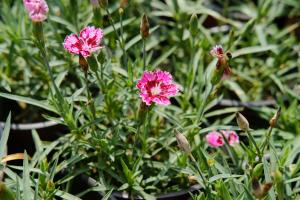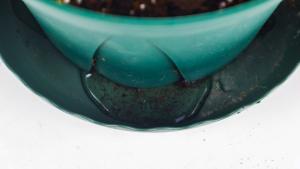Can You Water Your Plants with Tap Water?
Many gardeners and plant enthusiasts wonder whether tap water is safe and suitable for their beloved plants. After all, tap water contains various chemicals and minerals that are meant to make it safe for human consumption. In this article, we will explore whether or not you can water your plants with tap water and if there are any potential risks involved.
Chlorine and Fluoride
Chlorine and fluoride are commonly found in tap water and are used to kill bacteria and prevent tooth decay, respectively. While these chemicals are essential for human health, they can harm your plants. Chlorine and fluoride can cause plant foliage to turn yellow and brown, leaving your plants looking sickly and weak. To avoid this, it is best to let tap water sit for at least 24 hours before using it on your plants. This allows the chlorine and fluoride to dissipate.
Hard Water
Hard water is water that contains high levels of minerals such as calcium and magnesium. While these minerals are not harmful to humans, they can have negative effects on your plants. Hard water can cause soil to become alkaline and affect the acidity levels in your plant's roots. Over time, this can lead to stunted growth and even plant death. To prevent this, you can use a water softener or switch to rainwater or distilled water.
pH Levels
The pH levels in tap water can also affect your plants. Most plants prefer a slightly acidic soil pH of around 6.0 to 7.0. However, tap water can be slightly alkaline, with a pH of around 8.0. If your tap water has a high pH level, you can add vinegar or lemon juice to lower it. Alternatively, you can use a pH testing kit to monitor and adjust your water's pH levels accordingly.
Tap Water vs. Bottled Water
Many gardeners wonder if bottled water is better for their plants than tap water. While bottled water may be free from chlorine and fluoride, it is often less rich in minerals and nutrients that plants need to grow. Bottled water can also be expensive and generate more waste than using tap water. Ultimately, using tap water or bottled water comes down to personal preference and your plant's individual needs.
Conclusion
In conclusion, tap water can be safe for your plants as long as you take precautions to address any potential issues. By letting tap water sit, using a water softener, adjusting pH levels, and monitoring your plant's growth, you can ensure that your plants thrive and stay healthy. Remember to always do your research and consider all the factors before deciding whether or not to use tap water on your plants.

 how many times do yo...
how many times do yo... how many planted tre...
how many planted tre... how many pine trees ...
how many pine trees ... how many pecan trees...
how many pecan trees... how many plants comp...
how many plants comp... how many plants can ...
how many plants can ... how many plants and ...
how many plants and ... how many pepper plan...
how many pepper plan...































